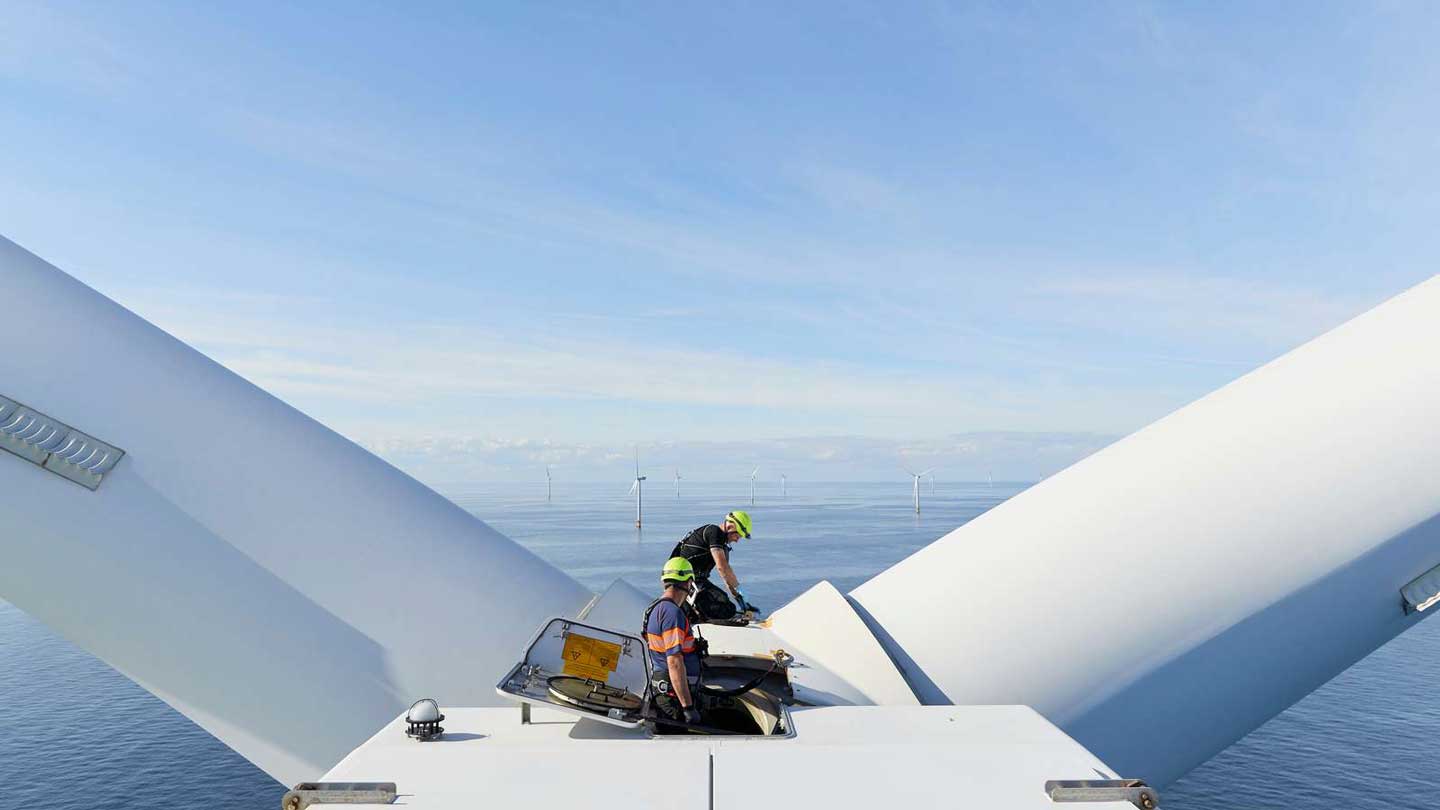Ørsted's renewable energy solutions are leading the green transition
Energy production and use are responsible for 73% of global greenhouse gas emissions. So transforming the way we power our world is one of the most important things we can do to fight climate change.
At Ørsted, that’s what we’re doing. We operate onshore and offshore wind farms, solar centres, energy storage facilities, and bioenergy plants. By building cost-competitive green energy solutions on a large scale, we help countries and companies around the world accelerate their transition from fossil fuels to renewable energy.
Our solutions make it possible to realise our vision: to create a world that runs entirely on green energy.




